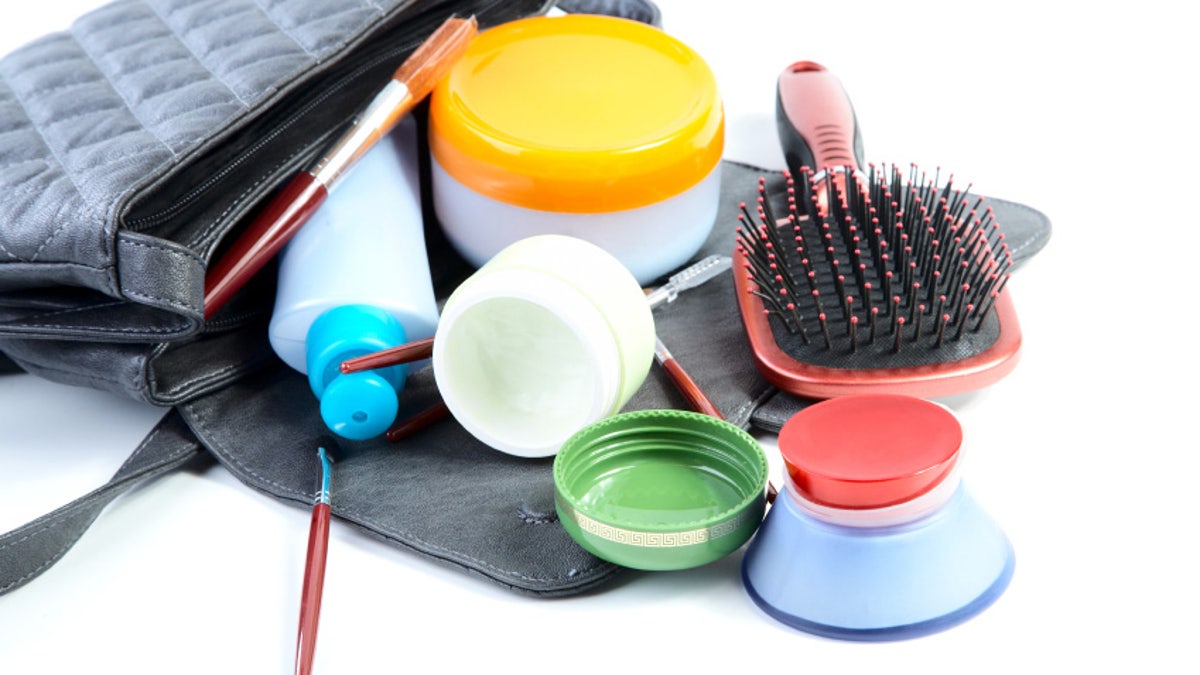
Female bag and cosmetics isolated on a white background (iStock)
Levels of endocrine-disrupting chemicals dropped when young women stopped using traditional cosmetics for a brief period of time, found a new study published in Environmental Health Perspectives.
These personal care products, including makeup, perfume, hair products and sunscreen, are made with chemicals such as phthalates, parabens, triclosan and oxybenzone, which have been shown to disrupt the body’s endocrince system, Medical Daily reported. These disruptions can cause hormone imbalances and neurobehavorial problems, obesity, diabetes and cancer.
Researchers from the University of California, Berkeley, sought to study how long these chemicals remain in the body. Working with a local health clinic, they asked a group of 100 girls to stop using their personal care products for three days, Medical Daily reported.
"Teen girls may be at particular risk since it's a time of rapid reproductive development, and research has suggested that they use more personal care products per day than the average adult woman,” lead study author Kim Harley said in a press release.
The team found that the product break led to a significant decrease in levels of the endocrine-disrupting chemicals. In urine samples taken before and after the trial, they observed a 45 percent decrease in propyl parabens (found in cosmetics), 44 percent decrease in methyl parabens (found in cosmetics), 36 percent drop in benzophenone-3 (found in sunscreen) and triclosan (found in antibacterial soaps), and a 27 percent drop in diethyl phthalate (found in perfume).
Researchers noted that they observed a small increase in two less common parabens, likely due to potential ingredient substitution or accidental contamination. While this may indicate the need to investigate the purity of chemical-free products, overall the study shows the clear need to avoid typical personal care products, they added.
"One of the goals of our study was to create awareness among the participants of the chemicals found in everyday products, to help make people more conscious about what they're using," said Maritza Cárdenas, one of the study’s teen researchers who is now an undergraduate student at UC Berkeley. "Seeing the drop in chemical levels after just three days shows that simple actions can be taken, such as choosing products with fewer chemicals, and make a difference."
